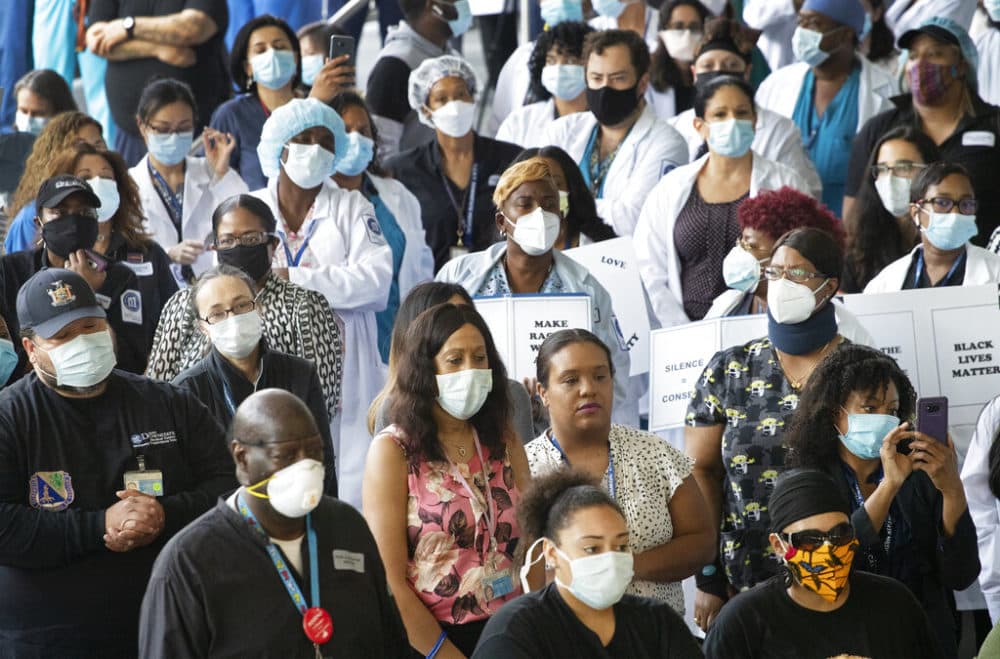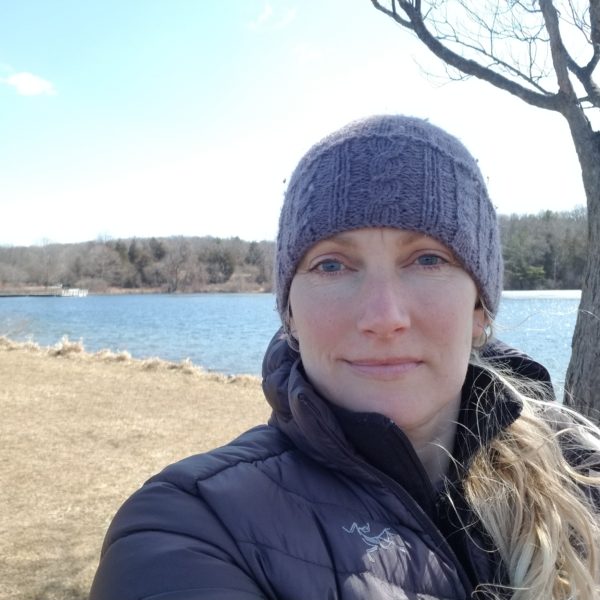Advertisement
Using 'Systems Thinking' To Make Sense Of The World, From Pandemics To Politics
Resume
To solve a puzzle, you never just look at one piece of it. So why do we try to tackle the most complex problems of modern life in such a piecemeal fashion?
From pandemics to politics, we discuss whether shifting to so-called "systems thinking" unlock hidden solutions to the world's biggest problems.
Guests
Zeynep Tufekci, associate professor at the UNC School of Information and Library Science. Author of the Insight newsletter. (@zeynep)
Interview Highlights
On a definition of ‘systems thinking’
Zeynep Tufekci: “It's looking at the world as the interdependent, complex thing that interacts with each other over time that it is. … It basically is looking at the world the way it really is, which means that there is many things moving at once. They do not happen according to the way we have our academic discipline set out.
"And these things interact with each other in ways that are not always X and then Y, and then there's the simple answer. Because things kind of snowball and sometimes there's exponential threats, and sometimes there's feedback cycles and all those complications. So that's what I mean. I'm looking at many things at once to understand the dynamics of something that's out in the real world.”
Doesn't that happen de facto outside in the real world?
Zeynep Tufekci: “Yes and no. So I think most of us try to do this to some degree. But to do something like that for a complicated problem, you really do need to put in some effort. That's why I kind of talk about the academy, not that you need to have a PhD or work in the academy. You can be an analyst. You can be a writer. You can be a thinker who does all of this. Like, you don't need the credentials, but you do need to put in the work because it's not just like bringing together 10 superficial things and just making a guess.
"You have to sort of understand a lot of things, which is work. I mean, this is, again, not credentials, but work. So you have to have some understanding of pandemic dynamics, some understanding of the virology. You don't have to be a super expert, but you need to understand, what am I hearing? And then you need to sort of put it together. Very often, like my own personal, the area that I go deep is how the public sphere operates, how social media, traditional media, how governments and social movements and social change operate, which are very closely related, of course, to how a pandemic works.
"But there are other areas where I am not the expert and I will never claim to be the expert, but I have to put in an enormous amount of work so that I understand what I'm reading right. I'm not going to produce knowledge the way the experts in that field are going to produce knowledge. But I'm going to put in the legwork to sort of look at the papers, look at the news. ... For example, we talked about it to understand how would we figure out why human to human transmission and sustained human to human transmission, why does it matter? What does it mean? How do we know when it's happening?
"All those things require a little bit of going out of your comfort zone. It's a little dangerous because too little knowledge and too much confidence and you sort of go like china in a bull shop to disciplines that are not your own. You could really not understand something. So you have to sort of constantly check in with the experts in those fields, do the legwork. But you can't just say, That's not my area and I'm going to ignore it. Because the world doesn't ignore it. So it's as I said, it's a balance between a little bit of sort of bravado, but also real humility so that you're not just being stupid about something.”
Did enough of that thinking happen from key members of the Trump administration early on in the pandemic?
Zeynep Tufekci: "Well, obviously not. I think with the Trump administration, we had a particular problem in that they were just interested in managing the political fallout. And they weren't even good at that because they were just talking themselves into it's not going to happen here and proceeded to try to talk the country into it's not going to happen here. And that doesn't work. It's kind of like saying, I'm going to talk the tsunami out of happening. You're not going to be able to do it. If it's on its way, it's on its way. So it was terrible. It was pernicious. And I don't think the harm can be overstated.
"The pause I have is because I think the problem was bigger than the Trump administration. I mean, I will be the first to say I really think they mishandled it. And I think some of it is, you know, negligent to malicious the way they undermined public health agency. So I'm not at all mincing words here. But what I do want to say is that look at the world, you know, look at Europe, look at many other countries. Look at the way the World Health Organization, some of the things you played, acted early on. Even though there's complicated reasons there, too.
"So I'm a little wary of just blaming the Trump administration, although they deserve an enormous amount of blame for enormous amount of mistakes, because I think it was a broader problem. Because, I mean, one year ago today, I just looked at my tweets and I was just fuming in frustration saying we have to flatten the curve. I was saying all these things, we have to, we can't just do this. And there's a lot of people, experts, dissidents to Trump, like people in quote-unquote resistance, people in blue states, people who weren't listening to Trump, who also weren't acting, trying.
"Like conferences weren't being canceled, the states weren't doing what they could do. So the problem, I think, is not that the Trump administration should be absolved of the culpability they absolutely carry, but that we need to realize that it's much bigger than that. And that's why I'm still talking about it, because this is not the first or last time we're going to face this kind of challenge. And as we head to the last phase, there's going to be a tendency to want to forget all the lessons. But we just got a stress test. We should learn those lessons."
On how people can use 'systems thinking' in their everyday lives
Zeynep Tufekci: "Respect expertise and respect sort of that 'going deep' part. But also don't feel like you cannot think about things by bringing them together. Like, you have to sort of combine this. ... You got to do some legwork yourself and try to understand multiple things and bring them together and be open to that process at the same time. So it's not a question of credential. It's a question of doing the work, putting in the time and just trying to balancing it out as a process."
From The Reading List
New York Times: "To Understand This Era, You Need to Think in Systems" — "So as a million media theorists before me have argued, in a few short decades, or depending on how you want to rate it, a few centuries, we’ve moved from the defining problem of human civilization being information scarcity."
The Hill: "Systems Thinking — the new American idea" — "Systems Thinking is a somewhat vague concept, but one that is getting increased attention thanks to the news about coronavirus. The premise is simple, but putting Systems Thinking into practice can be challenging, especially for individualistic-minded Americans."
The Atlantic: "It Wasn’t Just Trump Who Got It Wrong" — "Many will be tempted to see the tragic coronavirus pandemic through a solely partisan lens: The Trump administration spectacularly failed in its response, by cutting funding from essential health services and research before the crisis, and later by denying its existence and its severity."
New York Times: "How Zeynep Tufekci Keeps Getting the Big Things Right" — "When the Centers for Disease Control and Prevention told Americans in January that they didn’t need to wear masks, Dr. S. Vincent Rajkumar, a professor at the Mayo Clinic and the editor of the Blood Cancer Journal, couldn’t believe his ears."
The Atlantic: "America’s Next Authoritarian Will Be Much More Competent" — "Now that Joe Biden has won the presidency, we can expect debates over whether Donald Trump was an aberration ('not who we are!') or another instantiation of America’s pathologies and sins."
This program aired on February 25, 2021.

